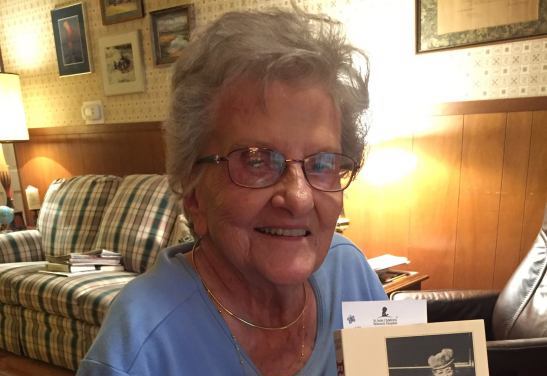Dorothy Stuck received a letter in the mail addressed to Mrs. Howard C. Stuck, the owner and editor of three Poinsett County newspapers. The letter invited her to join Arkansas Newspaper Women, a fledgling offshoot of the Arkansas Press Association ushered in by Fayetteville publisher Roberta Fulbright.
“I wrote back and said I didn’t really think I was eligible because I wasn’t doing any news writing or reporting,” she said. “Somebody called me from the press association and said that doesn’t make any difference. We want all of you that have any association whatsoever with it.”
Stuck responded to the invitation and went to a meeting in Fayetteville where she can “remember Roberta presiding and why she thought it was important.”
A woman’s press group affiliated with the National Federation of Press Women would open up opportunities for national competition and writing awards. Stuck doesn’t remember any opposition to the women forming their own group.
By attending that meeting in 1949, Stuck became a founding member of Arkansas Newspaper Women. The organization is now known as Arkansas Press Women and is in its 68th year. Stuck, 96 and now of Little Rock, is the only known living founding member.
She is being inducted into the Arkansas Women’s Hall of Fame this month for her civil rights work and banking leadership that took place after her newspaper career. The Arkansas Women’s Hall of Fame showcases those who have made a major impact on the lives of others, according to Arkansas Business, and helped to elevate the status of women in our state, our nation, and, in some cases, around the world. Other 2017 inductees include Maya Angelou and Bernice Jones among others.

Dorothy Stuck poses with a book about Roberta Fulbright that she wrote with friend Nan Snow.
Arkansas Press Women President Kristin Netterstrom Higgins recently learned about Dorothy Stuck and spent an afternoon interviewing her about the organization’s early years.
She learned that Howard Stuck fell ill with polio in 1950 and was out of the business for a year. Dorothy Stuck took over reporting during that time and found her history and political science degree provided her a good foundation for filling the news pages.
Stuck began to cover the news and “didn’t find that too difficult to do the front page and do the main news and have one office assistant who handled the social news,” she said.
“You know, weeklies were so big on personals on who went to visit who, and when and where. The obituaries were very important,” Stuck said in a recent interview. “I used to say that weekly newspapers were writing the history of the United States one chapter at a time every week when they were recording births and deaths, which in a way they were.”
It was at another press association meeting where Stuck received encouragement from Ernie Deane about writing editorials.
“He said, Dorothy, your paper is not going to be as full as it needs to be until you write some editorials. I said, Ernie, I can’t write editorials, and he said I don’t see why not. You’re writing news. You’re writing columns. Just put that together. So I began to do it sort of tentatively at first, and gradually gained confidence and wrote a lot of editorials,” she recalled.
“And as I said, that got me involved in state politics because Winthrop Rockefeller saw those …”
Her editorials made it into the Arkansas Democrat’s Sunday roundup of local editorials.
Stuck would go on to be named Press Women of the Year in 1964. Stuck was elected to the Arkansas Constitutional Convention and led the Suffrage and Election Committee. She helped eliminate the state’s poll tax. She moved to Texas after being appointed as regional director to the U.S. Office for Civil Rights’ Department of Health, Education and Welfare in 1970. She later served as acting national deputy director for the Office of Civil Rights in Washington, D.C.
Stuck returned to Arkansas in the 1990s and served on Southern Bancorp’s board in addition to chairing the bank’s nonprofit arm, Southern Bancorp Community Partners.
“I think you have to have a sense of purpose and mine developed very early in walking the streets of Marked Tree,” Stuck said in response to a question about what advice she had for other women.
“I saw the socioeconomic difference that was based on race and class. I wasn’t in a position to do anything about it – the economic part. I didn’t think I was but I did begin to write about the inequity of segregation and the need to change that. That gave us a sense of direction and carried me all the way through.”
When she came back to Arkansas and was invited to be a part of the rural development bank, “I had a chance to work on the other half of my dreams to see that change and have seen it change.”

